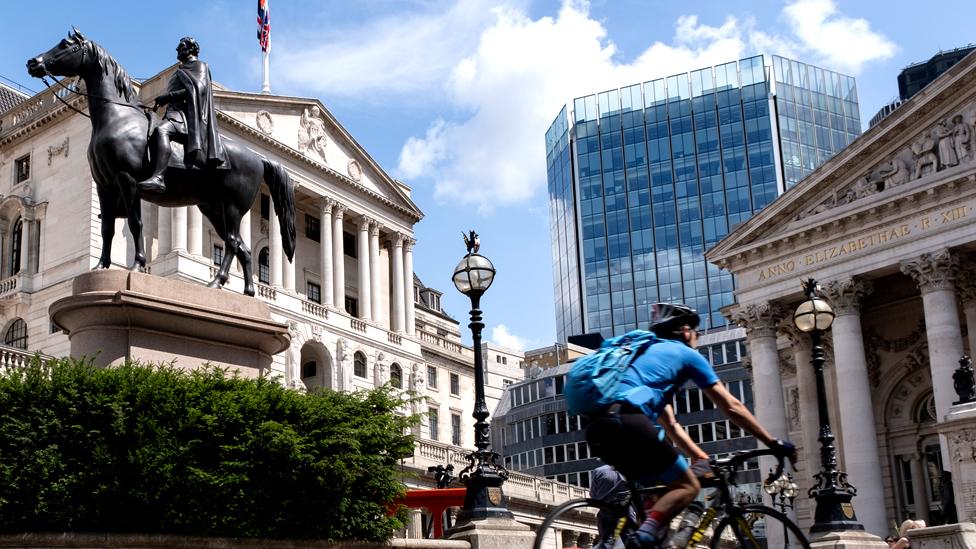Inflation: Food firms say lower rates not enough to help with bills
- Published
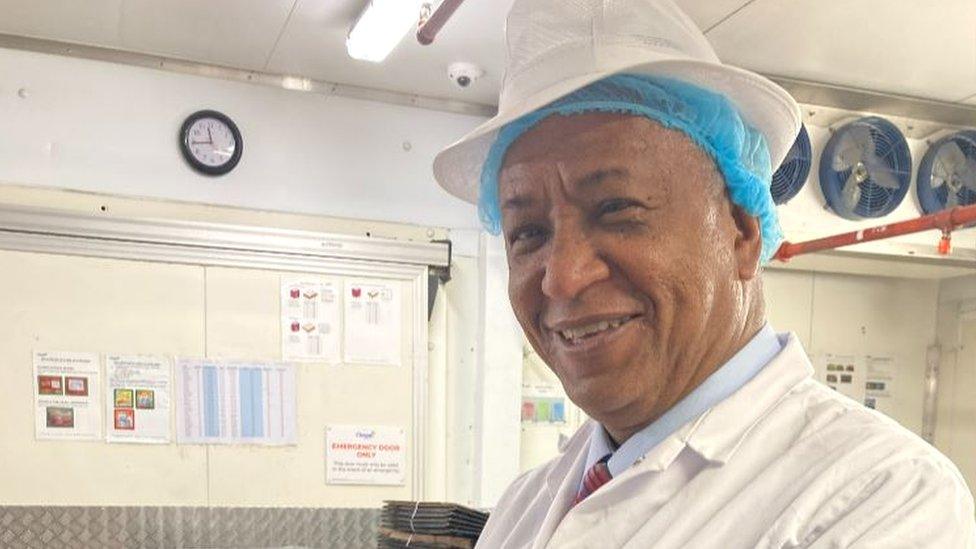
Wade Lyn CBE, the managing director of Island Delight, says rising costs have led the company to raise its prices by 8%
The UK's rate of inflation has dropped to its lowest in more than a year but businesses say it is not enough to combat rising prices.
It fell from 8.7% in May to 7.9% in June, figures from the Office of National Statistics have shown.
For food manufacturers and supermarkets in the Midlands, hard decisions are still having to be made, such as letting go of staff and raising prices.
"It's uncertain times," said Wade Lyn CBE.
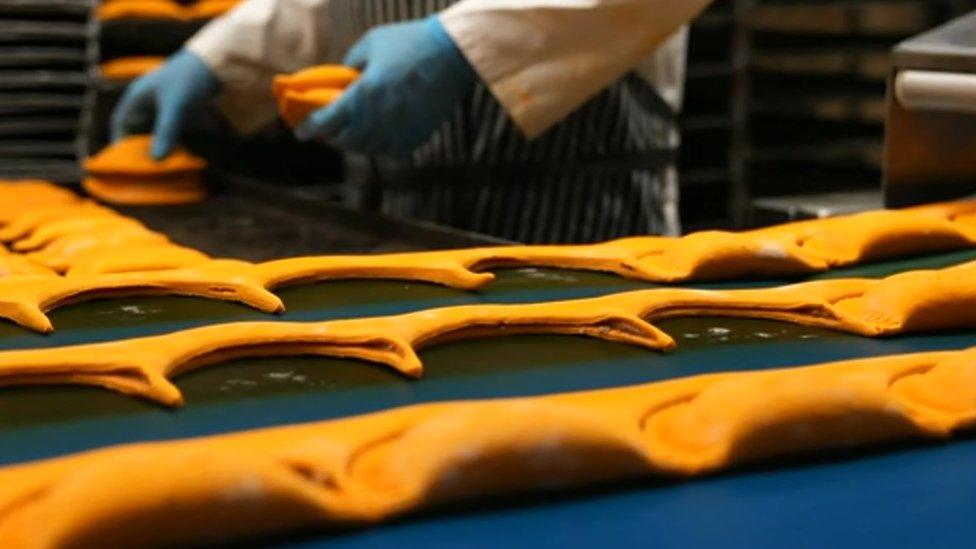
Island Delight, based in Birmingham, makes thousands of Jamaican patties a day
He runs Island Delights, a Birmingham-based company which makes 180,000 Jamaican patties a week, with supplies being sold in supermarkets across the UK.
As the firm had to swallow a spike in the cost of flour, vegetable fat, meat and utilities, Mr Lyn says he reluctantly had to increase his prices by 8%.
"Flour prices have gone up by 40% since last year, the war in Ukraine added to that," he said.
"Our vegetable fat prices have gone up by 60%, and the price of meat is now about 40% higher now than last year which has a knock on effect."
Despite the rising costs, the 70-strong workforce were given a pay rise to bring them above the living wage.
"It's uncertain times, we've seen our sales drop by about five per cent," he added.
Waseem Jagot, Island Delight's planning and procurement manager is in charge of the company's purse strings.
He said: "In the past year and a half, things seem quite dire.
"The problem is, [inflation] has fallen slightly but it hasn't fallen far enough. Food inflation is still quite high, it would have to fall significantly more for us to see any big differences."
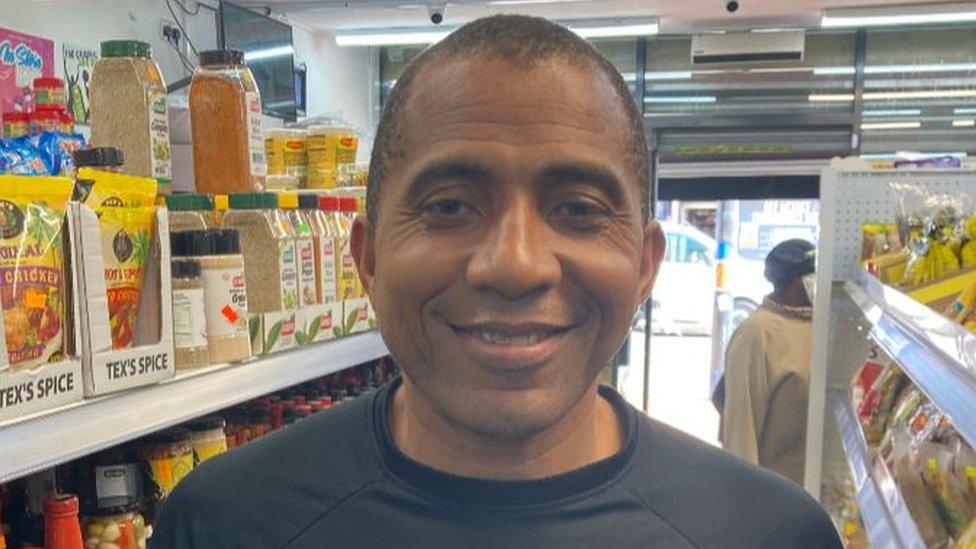
Jeffrey Miles, owner of Mojam Afro Caribbean Grocery says his family now help him run the shop after having to let go of two workers
Mojam Afro Caribbean Grocery, in Bearwood, sells the patties and also imports other goods from the Caribbean. Its owner Jeffrey Miles says price rises continue to cause a struggle.
Within the past year, the firm has had to lay off two staff members and Mr Miles works around the clock with the help of his family to make ends meet.
He said: "We've had to go through the business with a microscope trying to save on our electricity bills, wages and products.
"We've had to buy more cost effective things because people are spending less."
One of his customers, Maisie Edwards, told the BBC: "Prices are going up very high. As a pensioner, each week you don't know what to do."
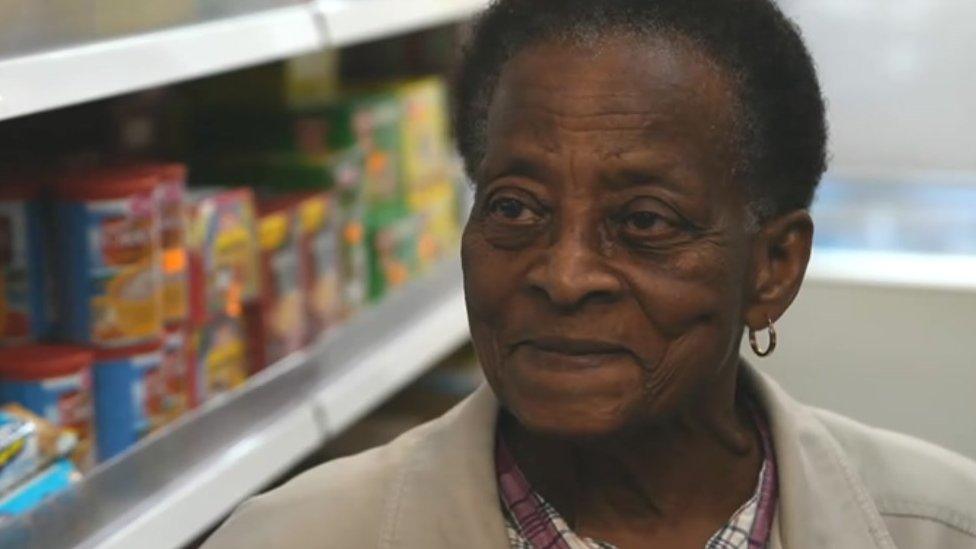
Pensioner Maisie Edwards says higher food prices means she's having to cut back and can no longer afford a holiday

Follow BBC West Midlands on Facebook, external, Twitter, external and Instagram, external. Send your story ideas to: newsonline.westmidlands@bbc.co.uk, external
Related topics
- Published15 November 2023
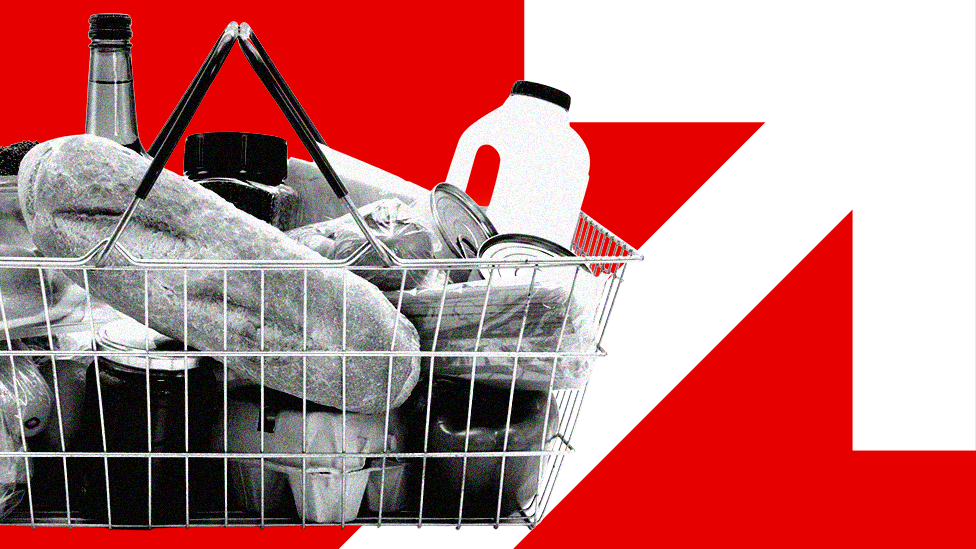
- Published19 July 2023
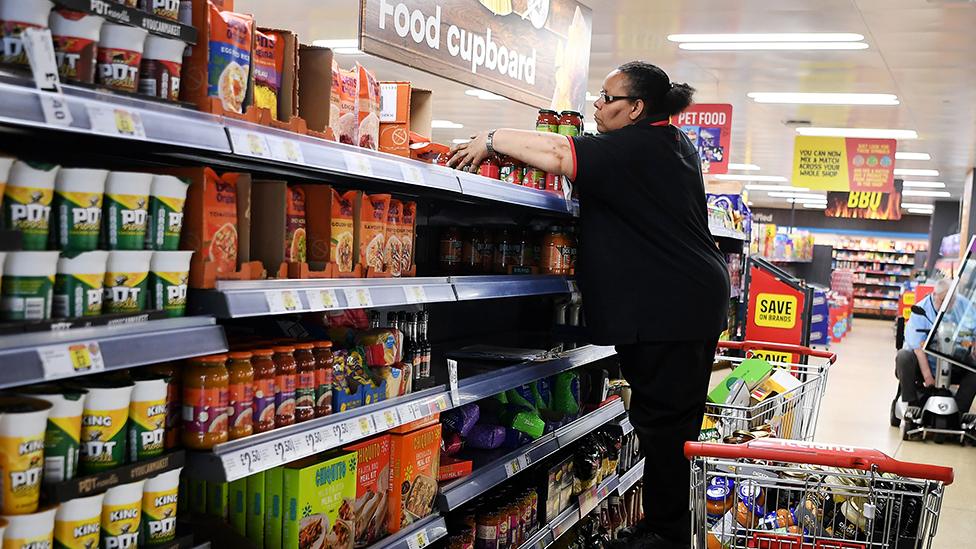
- Published19 July 2023
